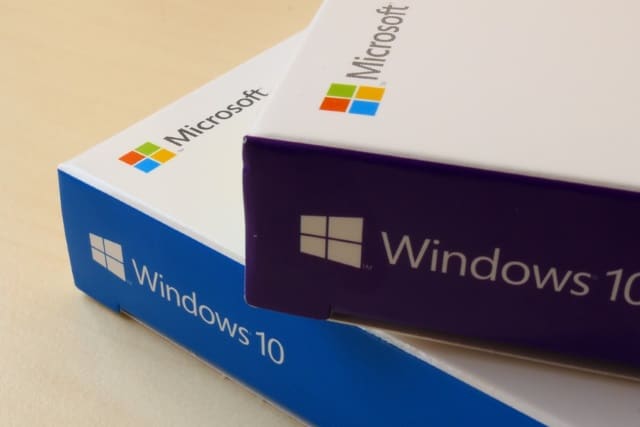Game audio problems in Windows 10? Microsoft has a fix for that

There's no denying that recent updates for Windows 10 have caused more problems than usual. In the last few weeks, updates have led variously to issues with the Start menu, screenshots, high CPU usage and more.
Gamers found that the KB4515384 update for Windows 10 version 1903 was causing problems with in-game audio. The company was fairly swift to suggest some workarounds, but it is only now that a proper fix has been released to address the issue.
See also:
- The KB4515384 update for Windows 10 1903 is causing sound problems in games
- Microsoft suggests fixes for Windows 10 1903 game audio problems caused by KB4515384
- The KB4515384 update is also causing network and Action Center problems
Microsoft has finally released the KB4517211 cumulative update for Windows 10 1903 (or the Windows 10 May 2019 Update, if you prefer). The company says that the non-security update, among other things, addresses "an issue that causes audio in certain games to be quieter or different than expected".
Here's the full list of improvements and fixes found in KB4517211:
- Addresses an issue that causes vertical fonts to be larger when printing to a PostScript printer.
- Addresses an issue that causes printing from 32-bit applications to fail with an "Access is denied" error when you select Run as different user for the application.
- Addresses an issue that may give write access to a removable USB disk when a user switches from a privileged user to an unprivileged user.
- Addresses an issue that causes the lsass.exe service to stop working, which causes the system to shut down. This occurs when migrating Data Protection API (DPAPI) credentials using dpapimig.exe with the -domain option.
- Addresses an issue that gives a Windows Hello for Business user two certificates for authentication during certificate renewal instead of one certificate.
- Addresses an issue that prevents a web browser from connecting securely to Windows Server. This occurs when using a client authentication certificate, such as a SHA512-based certificate, and the web browser does not support a signature algorithm that matches the certificate.
- Addresses an issue that may cause authentication to fail for certificate-based authentication when the certificate authentication includes a cname as part of the pre-authentication request.
- Addresses an issue that prevents a Microsoft App-V application from opening and displays a network failure error. This issue occurs under certain circumstances, such as when a system's battery is low or there is an unexpected power failure.
- Addresses an issue that causes a query request of the Win32_LogonSession class for the StartTime to display the value of the epoch (for example, 1-1-1601 1:00:00) instead of the actual logon time. This occurs when a user who isn't an administrator creates the query request.
- Addresses an issue that causes File Explorer to show a regular file icon for files marked with FILE_ATTRIBUTE_OFFLINE instead of the expected placeholder icon.
- Addresses an issue with intermittent virtual private network (VPN) disconnections on cellular networks.
- Addresses an issue that may cause audio playback and recording to fail when connecting to a remote virtual machine.
- Addresses an issue with MSCTF.dll that causes an application to stop working.
- Addresses an issue with the input and display of special characters that occurs when an app uses imm32.dll.
- Addresses an issue with resizing Windows Presentation Foundation (WPF) applications; they may not respond to being resized using the mouse until you release the mouse button.
- Addresses an issue that may prevent older systems from upgrading to the latest operating systems because of an error in the display driver of older versions.
- Addresses an issue that may cause the screen color to turn white on laptops that have built-in, high-dynamic-range (HDR) screens.
- Addresses an issue with converting an application from 32-bit to 64-bit architecture.
- Addresses an issue that prevents you from running the Active Directory Diagnostics Data Collector Set from the Performance Monitor for Domain Controllers. This causes the Data Collector Set name to appear empty. Running the Active Directory Diagnostics Data Collector Set returns the error, "The system cannot find the file specified." Event ID 1023 is logged with the source as Perflib and the following messages:
- "Windows cannot load the extensible counter DLL "C:\Windows\system32\ntdsperf.dll."
- "The specified module could not be found."
- Addresses an issue that causes audio in certain games to be quieter or different than expected.
- Addresses an issue that prevents Microsoft App-V from handling a parameter of the CreateProcess API properly, which prevents the virtual process from opening.
- Addresses an issue in which the maximum central processing unit (CPU) performance is not enabled when you select the High Performance power plan.
- Provides a way to configure the read buffer size. This allows you to address an issue with slow upload times when uploading a file to a Universal Naming Convention (UNC) share using the Internet Information Services (IIS) Web Distributed Authoring and Versioning (WebDAV) feature.
- Addresses an issue that causes a device to stop working when opening files from a network drive that has client-side caching enabled. This issue may occur when the device has certain third-party antivirus products installed and the drive is backed by a server that is not a Microsoft Server Message Block (SMB) server. The error code is, "0x27 RDR_FILE_SYSTEM."
- Facilitates the configuration of devices that are managed by mobile device management (MDM) settings, which are created by ADMX ingestion. You can update a previously ingested ADMX file with a newer version, and you are not required to delete the previous ADMX file. This solution applies to all applications that use ADMX ingestion.
Image credit: Friemann / Shutterstock
